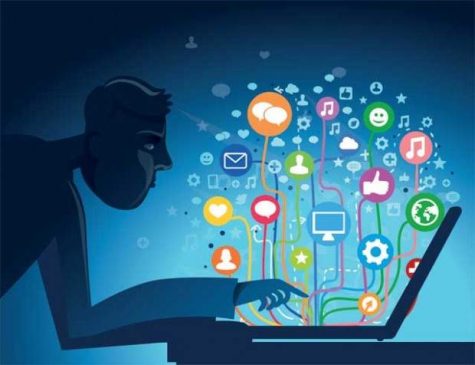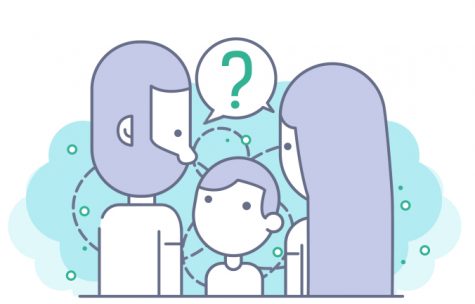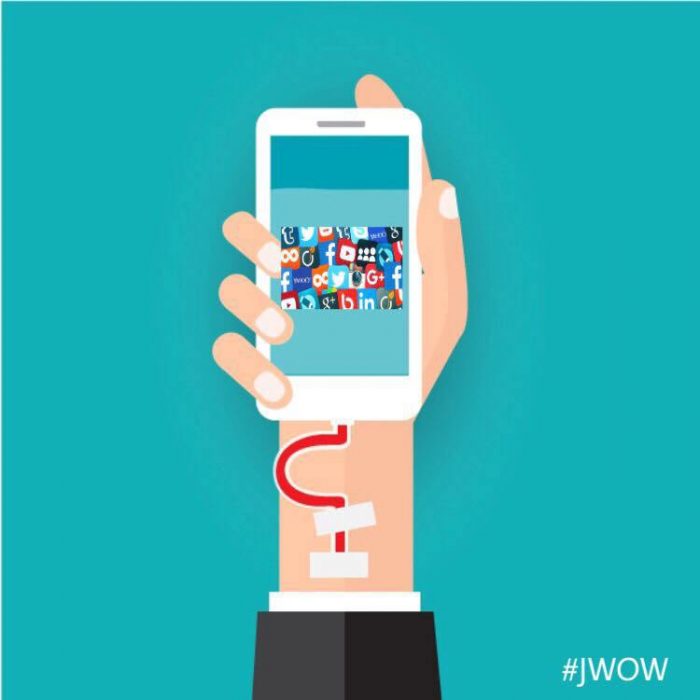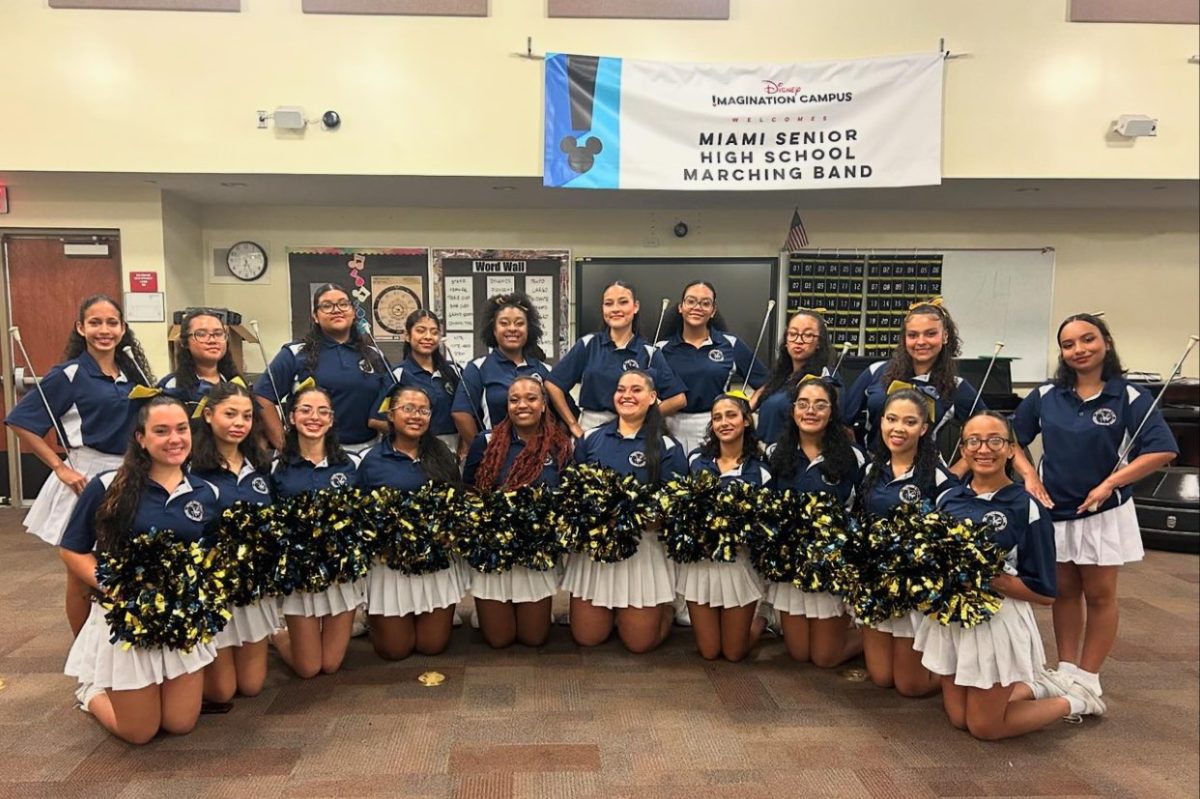Social Media Is Taking Over the World!
October 1, 2018
Billions of people across the globe have some sort of account on social media. Social media has a major impact in our lifestyles. Our world would function differently without these technical resources.

Direct Disadvantages
Nevertheless, social media carries disadvantages. Senior Kevin Aguilar said, “People spend so much time on social media that they forget there is a real world out there.” English teacher Ms. Rodgers believes that it has a negative effect on self-esteem.
Sophomore Johana Nuñez points out the “cyber bullying” and “inappropriate” material within social media, but to her, the biggest drawback is that it shows teens how they should be. She said, “They set really high standards that are not within their reach.”
Bonus Advantages
Although social media can create bad mentalities, it has its advantages in providing publicity, entertainment, and a new way to communicate. Junior Ines Moya uses social media to display her artwork. Senior Angel Navas owns a personal blog to promote her photography skills. Junior Leonardo Perez logs on to his accounts for amusement from the people he follows. Senior Jonathan Rodriguez believes that social media’s greatest use is entertainment. He said, “It is a way to distract ourselves from the lives we have.”
Interact advisor Mr. Jimenez enjoys how he can chat with his family, friends, co-workers, and even strangers from across the world effortlessly.
Regardless for what we all use social media for, it has one optimal purpose — providing immediate information. “Social media has become one of those things that provide people with instant gratification,” said Ms. Rodgers. “As we move towards a more technological, advanced society, social media gets used constantly.” Mr. Jimenez also said that it is used for “quick responses, quick answers.”
FEA advisor Ms. Berrios said that social media can demonstrate any up-to-date information about your closest family members and friends. Every application revolves around finding some sort of information. Kevin Aguilar spoke about how his mother used social media to contact her family from Honduras.

What do parents say?
Surprisingly, many parents do not play a great role in students’ use of social media. Ines Moya’s family believes it’s very addictive but doesn’t interfere. Johana Nuñez’s parents allow her to use social media as long as she isn’t consumed by it. Angel Navas’s family are neutral about her since “they both have social media as well, and we all follow one another.”
Some kids know how to prevent their parents from knowing what they are doing online. Jonathan Rodriguez blocked his parents from all his platforms due to the invasion of privacy. “They have no known opinion about my social media usage as a result,” he said.
On the other hand, Choir treasurer Jade Santiago said that her parents know everything that she publishes on social media except for her Snapchat.
During Mr. Jimenez’s past, his father was very strict about his My Space and Facebook use. As time passed, more websites were created, filled with dangerous people and actions, which concluded in his father becoming more aware of Mr. Jimenez’s online activity.
Too Much of a Good Thing
Too much social media use can be harmful. For instance, Ms. Rodgers said that social media affects her negatively due to “being over exposed to injustices and inhumane treatment [that] people face.” Angel Navas stated, “I would notice that I was spending way too much time on Instagram rather than completing assignments.”
An addiction?
Social media can be considered an addiction. Johana Nuñez said, “People don’t realize that they end up losing themselves mentally.” Jade Santiago believes that students are addicted to the “likes, the comments, [and] the attention.”
On a more hopeful note, Angel Navas points out, “But like any other addiction, you can choose when to stop.”
Social media: Helpful or Harmful?
- Due to the ability of social media to enhance connections by making people easily accessible, social media can yield many benefits for the young, including providing a virtual space for them to explore their interests or problems with similar individuals, academic support, while strengthening online communication skills and knowledge.
- On the other hand, “Our findings indicate that electronic media use is negatively associated with grades. We also find that about two-thirds of the students reported using electronic media while in class, studying, or doing homework (Jacobsen, & Forste, 2011).” This multitasking likely increases distraction, something prior research has shown to be detrimental to student performance.
- Cyber-bullying is quite common, can occur to any young person online, and can cause profound psycho-social outcomes including depression, anxiety, severe isolation, and, tragically, suicide.
Source: https://scholarsarchive.jwu.edu/cgi/viewcontent.cgi?article=1004&context=mba_student
Source: http://pediatrics.aappublications.org/content/pediatrics/early/2011/03/28/peds.2011-0054.full.pdf






